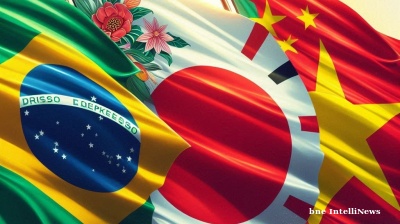May data on household income and consumption is slightly better than expected although this could be down to one-off factors. Corporate activity is clearly subdued but may see some support from the scheduled pick up in state spending in the second half of the year
Household income and consumption better than expected, but we're still not too optimistic.
The May Russian retail trade growth of 1.4% y/y and a real salary increase of 2.8% y/y are both better than expected. Combined with an upward revision of April data by 0.4 pp and 1.5 pp respectively it may appear as a positive sign. However, we remain cautious for several reasons:
- The spike in real salaries to 2-3% y/y in April-May vs. 0-2% y/y growth in 1Q19 (amid relatively stable CPI growth at c.5% y/y) seems to be driven by the oil extraction and financial sectors (they account for 4.6% of those employed), which may reflect annual bonus payments or other sector-specific factors;
- For the broader population, retail lending growth seems to be the primary source of financing consumption, however it started decelerating from May, and the publicly expressed concerns with the pace of consumer lending growth by the Bank of Russia (CBR) and the president suggest little room for further support to consumption from lending in the medium-term;
- The structure of retail trade suggests continued deceleration of growth in the sales of non-food items from 2-3% y/y in 1Q19 to 1-2% y/y in April-May, possibly reflecting the continuing effect of a VAT hike amid income growth concerns;
- Today's comments by the president during the annual call-in session with the general public suggests, in our view, that the government is not looking to adress the issue of income and poverty with additional social spending but would rather aim at higher labour efficiency. This message is positive for the macro stability framework, but suggests that any fast and easy support to household income is unlikely.
Overall, with a lack of obvious income drivers, likely deceleration in retail lending and limited scope for deceleration in inflation from the current levels, we continue to expect subdued consumption growth this year.

Corporate activity weak, but may recover in 2H19 thanks to budget seasonality
The virtually nonexistent 0.2% y/y growth in construction in May, combined with the 0.9% y/y increase in industrial production (we commented on it earlier this week) and lack of any noticeable acceleration in corporate lending - suggest there's little recovery in the corporate sector from its stasis mode. However, we reiterate there is a hope for some recovery in 1H19, as state spending on direct support to the economy is scheduled to accelerate from -19% y/y in 1Q19 to the drafted +16% y/y for the full year, as the 'National Projects', which are 70% capex, gain traction, and overall budget spending accelerates from 6% y/y in 1Q19 to the 13% y/y drafted for the full-year.
As for the longer-term debate on whether to allow investing part of NWF, the sovereign wealth fund, into the local projects from 2020, the president's position in the debate between Minfin (in favour) and the CBR (concerned) has yet to be clarified. Today's call-in session on the one hand started with highlighting the importance of the National Projects (we believe the idea to invest part of NWF into the local projects is at least partly linked to the search of sources to finance the massive RUB26 trillion programme), but on the other hand there were no clear signs that the president is comfortable with sacrificing the conservative approach to the budget policy.

Dmitri Dolgin is the Chief Economist, Russia, at ING in Moscow. This note first appeared on ING’s “Think” portal here.
Content Disclaimer: This publication has been prepared by ING solely for information purposes irrespective of a particular user's means, financial situation or investment objectives. The information does not constitute investment recommendation, and nor is it investment, legal or tax advice or an offer or solicitation to purchase or sell any financial instrument. Read more
Opinion

BEYOND THE BOSPOROS: Regime panicky over opposition call for “No shopping day”
English rock band Muse, meanwhile, scrap Istanbul concert in solidarity with Imamoglu protesters.

COMMENT: Brazil’s Lula builds economic bridges across the Pacific
Brazil's President Lula boosted ties with Japan and Vietnam during his Asian tour last week, securing aircraft deals, beef markets and partnerships.

COMMENT: South Caucasus offers a potential diplomatic triumph for Trump
The new US administration wants to become the political team that ends the longstanding conflict between Armenia and Azerbaijan.

Emerging Europe risks being “cast adrift” from the West, think-tank warns
Ongoing geopolitical realignment accelerated by Trump’s return to office could plunge Emerging Europe into a cycle of instability and regional conflict, says a paper published by the ECFR.




